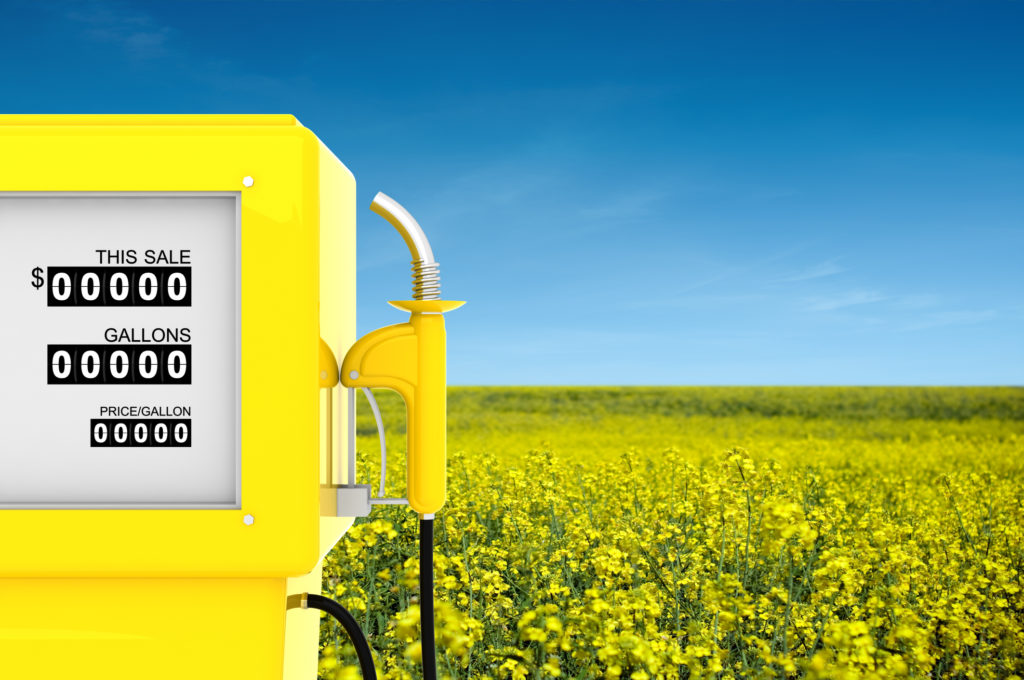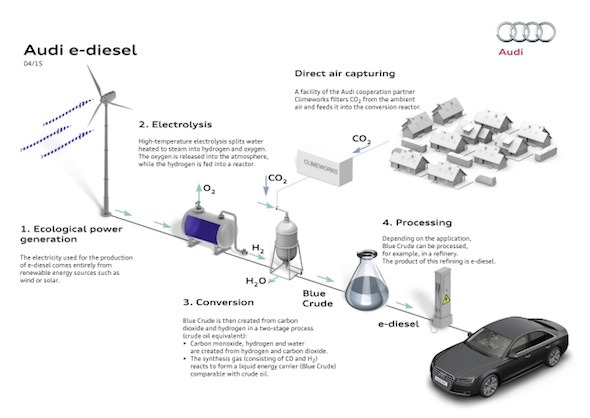Could Plants Be the Petroleum Alternatives We’ve Been Waiting For?

Running our cars on corn and used cooking oil sounded like a novel prospect in the early aughts when oil prices spiked. And though it didn’t take off as expected, that doesn’t mean that biofuels are dead. Now, in addition to developing bio-diesel, scientists are working on creating more efficient petroleum alternatives from plants and other renewable sources that could become commercially viable, without competing with food crops.
Are Biofuels Still Worth It?
A universal switch to electric vehicles and a complete abandonment of fossil fuels would be ideal for the planet, but since that’s not going to happen anytime soon, the development of petroleum alternatives mixed with gasoline seems to be one way to incrementally phase out fossil fuels. But with the massive grip the oil industry has on the global energy economy, those steps have been slow and met with a lot of resistance.
Biodiesel has been around for several decades now, though most of the commercially used fuel is blended with traditional diesel. And while B100, or pure biodiesel fuel, is typically compatible with most engines, it isn’t sold everywhere.
There have also been hurdles in its implementation with regulating emissions and ensuring engine compatibility, but in the U.S. the biggest hurdle has been the price. Diesel has been taxed heavier than regular petroleum, making diesel engines less common in the U.S. compared to other countries.
Biodiesel is a much cleaner fuel source, as it’s carbon emissions are offset by the growth of the plants, like soybean, used as the fuel source. The only emission it produces more of is nitrogen oxide, though more recent vehicles have implemented filters to curb NOx almost entirely.
For blends of biodiesel such as B5 or B20, the amount of hydrocarbon pollution is equivalent to the amount of non-biodiesel petroleum in the blend. Though it’s better than nothing, the jump to B100 would result in an estimated 74 percent decrease in carbon dioxide emissions. Making this jump would require sweeping policy changes, but for now the good news is that biodiesel production has been steadily on the rise, though it still only accounts for about 5 percent of all transportation energy sources.
When it comes to biofuels for non-diesel petroleum, the story is slightly different…
While ethanol mixed with gasoline might lower emissions from your car, many argue that the energy-intensive process for growing crops like corn and sugarcane cancels out the benefits, actually leading to greater aggregate emissions. In fact, according to the International Panel on Climate Change, or IPCC, the climate benefits from replacing non-diesel petroleum with biofuels is basically nothing. At the same time, ethanol lowers your gas efficiency by at least 3 percent.
Plant Oil As Fuel
There are certain plants that produce compounds called terpenoids, or terpenes, that can generate hydrocarbons, which are typically ideal candidates to be used as a biofuels. Ranging from bacteria to pine, these terpenes are being studied by private companies and government agencies to be genetically modified to produce more hydrocarbons.
Starting in 2009, the U.S. Energy Department’s Advanced Research Project Agency, or ARPA-E, was running a research program looking at 10 different potential sources for the next big biofuel. The project was called PETRO, an acronym for Plants Engineered to Replace Oil.

One area it focused on was engineering tobacco to be more efficient in its photosynthesis process by incorporating algae and cyanobacteria for hydrocarbon biofuels. Another project worked on engineering plants to produce more vegetable oil in leaves and stems, rather than just seeds.
The program gave each project three years to prove itself worthwhile before it was scrapped, leading to many successful advents and continued rounds of funding. Unfortunately, the entire PETRO project was cut about a year ago.
But now private laboratories and universities are picking up where ARPA-E left off, further developing terpene-rich plants through bioengineering. One group even alluded to the idea that advancements in genome editing, like those seen with the CRISPR/Cas-9 editing tools, might be useful in this field to induce greater terpene production.
Another area where plants have been studied as a fuel source is for jet fuel. In North Dakota, chemical engineers used a combination of canola oil, soybeans and coconuts to create a fuel indistinguishable from traditional jet fuel. Similar biofuels have been used to fuel jets for commercial airlines using algae, palm oil, and even greek yogurt.
Advancements in Petroleum Alternatives
Instead of looking at plant oil as fuel, one company in Germany has started to convert carbon from air pollution into hydrocarbons to be used as a fuel source. The company, called Sunfire, has now partnered with Audi and Climeworks to create synthetic diesel, branded as E-diesel.
By taking carbon dioxide, water, and electricity, the company is able to create a carbon-neutral fuel source powered by renewable energy.
The process begins with the use of electrolysis to split water into hydrogen and oxygen. The separated molecules are then combined with carbon dioxide in a conversion reactor that then emits water, hydrogen, and carbon monoxide. The hydrogen and carbon monoxide are then put into an F-T reactor to create the hydrocarbons burned in combustion engines.
The whole process is powered by renewable energy including solar and wind, creating a completely carbon neutral process. This environmentally friendly diesel is also much more efficient at 70 percent compared to the 40 percent efficiency of traditional diesel.

The product, originally known as Blue Crude, was developed by Sunfire who received an initial investment from Norway to build its first plant. While Sunfire and Audi continue to develop the technology, there have been questions about whether it could succeed in the U.S. with diesel prices significantly higher than regular petroleum. However, in Europe, where diesel is more widely-used and cheaper, E-diesel looks much more promising.
According to proponents of renewables and petroleum alternatives, unless there are drastic policy mandates, the market won’t move away from fossil fuels, especially in the United States. New technology has led to the discovery of more oil and subsequent drops in oil prices, while the cost of lithium-ion batteries remains high.
In Germany, a piece of legislation was proposed that would ban all internal combustion engines by 2030, forcing citizens and the auto industry to hasten development of electric vehicles. But in order for that legislation to go into law, it would have to be approved by the EU’s legislative body. It’s also not necessarily a popular proposal, with Germany’s transportation minister calling it “utter nonsense.”
That sentiment shows the hurdles that would have to be overcome to change the direction of a massive, global industry. Not to mention the strain that producing lithium-ion batteries has on the environment from pollution during the process of mining elements like nickel, lithium, and cobalt. And while recycling these batteries is feasible, it could take decades before there is a significant volume of them to make an impact. It seems that a transition to bio-diesel and bio alternatives would be the most effective short-term solution, until we’re ready to finally abandon fossil fuels.
It's Time to Ask Whether We're Buying Ethically Mined Crystals

Crystals have become a hot commodity, as an increasing number of people are realizing their multi-faceted healing benefits. This has come to include celebrities, those trying to capitalize off their demand, and the average Joe. But when a natural resource becomes so valued, it’s probably time to start asking whether we’re buying ethically mined crystals or conflict stones.
Buyers and sellers of gems and minerals converge annually in Tucson, Ariz. for arguably the largest convention of its kind. There, minerals are brought in from across the globe, sold to private collectors, or shop owners around the country. Attendees find large specimens, themed displays, and some of the most beautiful examples of just about every gem and mineral known to man.
But where do they all come from and how do they get there? That was a question The New Republic recently asked, wondering whether the acquisition of healing crystals should be viewed through the same lens as conflict diamonds.





































